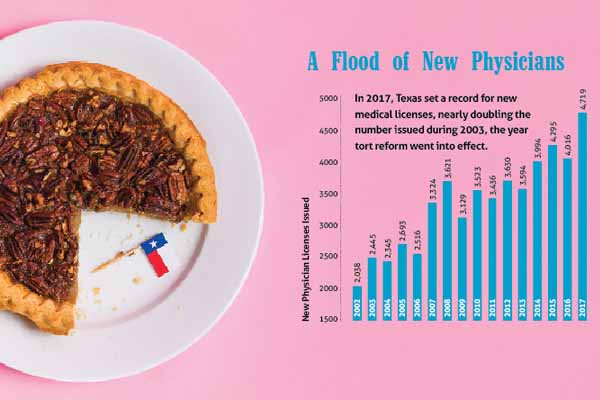Your office manager tells you that your partner has been late for office hours recently, has missed appointments and hasn’t been available when on call. A nurse confides that she’s noticed your partner making untypical charting errors in the past few months. A parent complains about him being impatient and irritable during an office visit.
This uncharacteristic behavior is deeply concerning. You fear some sort of impairment, possibly substance use. What is your responsibility, and what can you do?
The American Medical Association (AMA) Code of Medical Ethics lists the following responsibilities that physicians have toward impaired colleagues (http://bit.ly/2Dh4i2i):
- to intervene in a timely manner to ensure that impaired colleagues cease practicing and receive appropriate assistance from a physician health program;
- to report impaired colleagues in keeping with ethics guidance and applicable law; and
- to assist recovered colleagues when they resume patient care.
Yet one-third of physicians with personal knowledge of an impaired or incompetent colleague do not report (DesRoches CM, et al. JAMA.2010;304:187-193).
The Federation of State Medical Boards (FSMB) defines physician impairment as the inability of a physician to practice medicine with reasonable skill and safety as a result of mental disorder, physical illnesses or conditions, or substance-related disorders including abuse and dependency of drugs and alcohol (http://bit.ly/2zkPknl).
Physicians with substance use disorders (SUDs) have been described as “impaired.” Approximately 8%-15% of physicians will be impaired by psychiatric illness or SUDs at some point in their careers (Boisaubin EV, LevineRE. Am J Med Sci. 2001;322:31-36).
Clinical features of physicians with SUDs may include changes in mood/affect, decreased productivity, apathy toward patient care, increasing mistakes, inconsistent hours, complaints from patients or other colleagues, deterioration in appearance or physical health, and changes in social interactions. Physicians with SUDs suffer emotionally and may exhibit signs of mood swings, irritability, depression and disillusionment.
Physicians face unique occupational risk factors for developing SUDs, including high stress levels, pressure to succeed, long practice hours and ease of access to controlled substances. While alcohol use is most common among physicians with SUDs, prescription drug use, particularly for opioids and benzodiazepines, is higher among doctors than the general population.
Most states have a legal requirement for licensed providers to report physicians exhibiting signs of SUDs. Nearly every state has established a physician health program (PHP) to rehabilitate and monitor physicians with SUDs and other conditions. These programs often are associated with the state medical board (SMB) and/or medical society. PHPs have unique expertise in the care of impaired physicians and are equipped to support them throughout the recovery process, from evaluation through treatment and long-term monitoring.
In some states, reports may be made to the PHP rather than the SMB. Typically, the physician experiencing substance use problems may self-refer for evaluation by contacting the clinical staff at a PHP. Additionally, family members, colleagues or other concerned individuals may contact the PHP about a physician in need of assistance. This may prompt assessment, evaluation and intervention.
If the PHP determines treatment is necessary and the physician complies voluntarily, the PHP can serve as a confidential buffer with the SMB. If the physician does not comply, he or she could be reported to the SMB and face serious consequences such as licensure suspension and revocation. Those risks are greater if the physician is reported to the SMB without the involvement of the PHP.
Colleagues also may intervene without the PHP. There is no easy or foolproof way to do so. Here are some considerations:
- Note and document concerning behaviors and events as they occur. Maintain a record of specific aberrant behaviors, performance deficiencies and breaches of professionalism. Firsthand observations are useful.
- Before intervening, obtain legal guidance. Your medical malpractice insurer may provide risk-management and legal resources.
- Know and follow all relevant legal, professional and institutional requirements.
- Set up a meeting to share concerns and show support. Participants should be kind and empathetic, express positive regard for the physician’s ability, and avoid accusations, blame, arguing or negotiating.
- Present facts about the physician’s behavior in a way that lessens denial and encourages treatment. The meeting should not be conducted as an attack or confrontation.
- Provide resources such as how to contact your state’s PHP and note that there may be advantages to self-reporting.
- Be clear about expectations and consequences.
- Take appropriate steps to preserve your colleague’s privacy and reputation.
- Have policies and procedures for employees and shareholders delineating how physician impairment due to SUD will be addressed. These may cover issues such as leave of absence, time off for disability and disciplinary action, including termination or forced suspension. Work with an attorney to ensure the documents meet legal requirements.
Most state laws provide some immunity to those who appropriately report impaired physicians in good faith. Workplace policies and documentation of the problem are invaluable should a lawsuit arise. The risk of reporting is minimal compared to the patient safety and liability risks of allowing an impaired colleague to continue to practice.
While reporting friends or colleagues with suspected SUDs to a PHP or SMB can be difficult, physicians have a duty to their patients and profession to report and assist them. The good news is that over 70% of PHP graduates return to work with no signs of relapse or malpractice five to seven years post-treatment (DuPont, RL et al. J Subst Abuse Treat. 2009;36:159-171).
Dr. Santucci is a member of the AAP Committee on Medical Liability and Risk Management
Copyright © 2018 American Academy of Pediatrics
